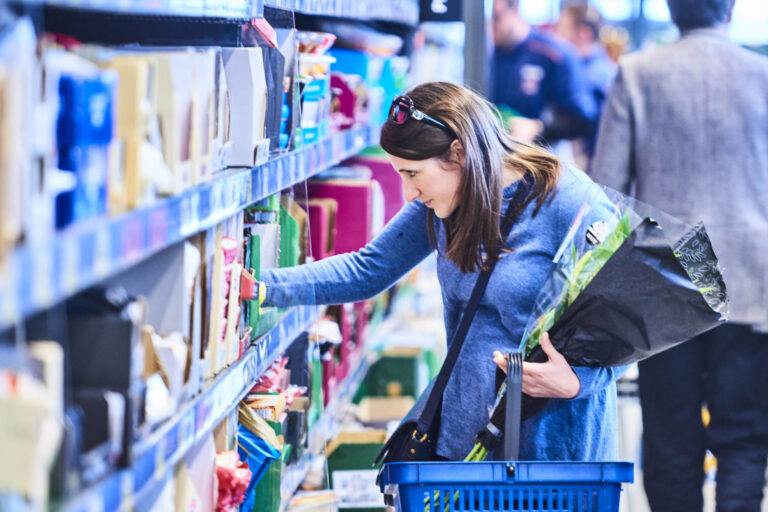An additional 15 million visits were made to supermarkets for the week-ending 17 March, compared to the same week in February, as COVID-19 led to sharp spikes in the sales of items such as toilet roll and dried pasta.
According to Kantar WorldPanel the average grocery store sale increased by 16% in the week ending 17 March, to £22.13 compared to the same week a month ago.
It said that consumers were adding more items to their baskets and making more trips to supermarkets, rather than stockpiling specific items.
Consumers reallocated spend to groceries, and supermarkets took 51% of all retail sales, an increase of seven percentage points on mid-February.
An additional 15 million supermarket visits were made in the week ending 17 March, compared to the week ending 17 February.
Fraser McKevitt, head of retail and consumer insight at Kantar, said: “Most of us have seen images circulating online of people bulk buying products like toilet rolls and pasta, but our data gives us a different, if counterintuitive, diagnosis of what’s happening.”
Kantar said that sales of toilet paper rose by 60% year-on-year for the week ending 8 March 2020, while dry pasta sales were up 55%.
“Ultimately we need to look at the empirical evidence and it tells us that temporary shortages are being caused by people adding just a few extra items and shopping more often – behaviour that consumers wouldn’t necessarily think of as stockpiling.
“People will also be eating in more as a result of social distancing and increased working from home. Consumers spend more than £4 billion each month on food and drink out of the home, a significant proportion of which will now be channelled through the supermarkets.
“Retailers have adapted to make sure everyone can access the products they need, with many restricting the number of any one good each customer can buy. However, the cumulative impact of a little extra, a little bit more often means these measures may have limited effect in the short term.”







